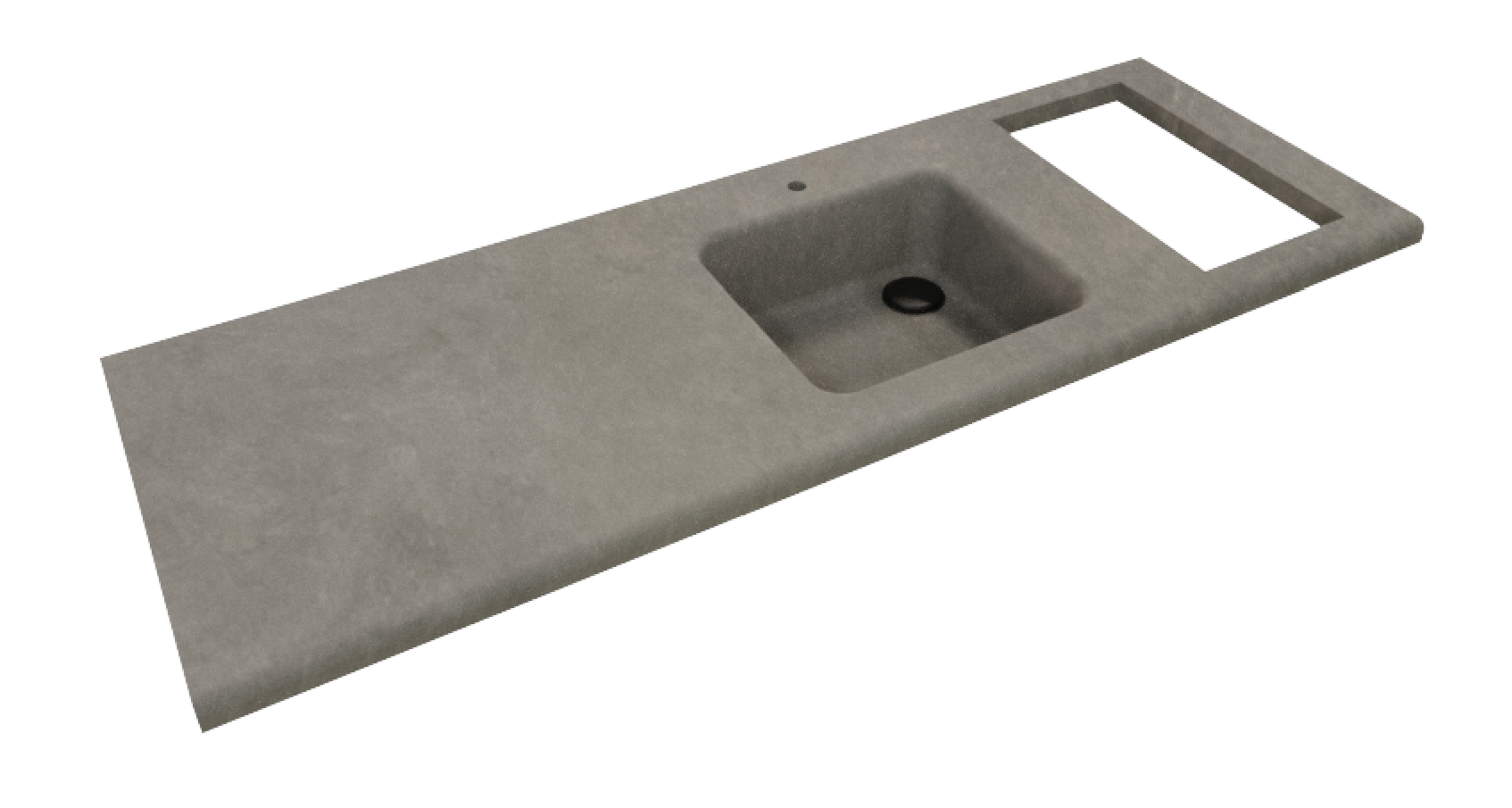I am planning to cast an indoor kitchen countertop out of concrete including a concrete sink.
Something like this:

(the hole is for a small cooktop)
I am planning to use glass fibre mesh for strength, superplasticizer and additives improving water resistance in my concrete mix, however since it is going to have very frequent direct contact with water, I want to seal the surface as well. The problem is that where I live(Klaipėda, Lithuania) I struggle finding any products for this whatsoever. I can easily get PU based clearcoat and silicone based hydro-isolation primer like this one but none of them are designed to specifically seal concrete countertops from water damage so I am hesitant.
I have seen advise to use PVA type 3 wood glue for sealing concrete and my thinking is that since it's water soluble before curing, I can dilute it a lot for first few layers so it gets absorbed by the concrete as much as possible and then use a few increasingly concentrated layers so it bonds really well with the concreate and not only coats the surface. So my thinking is that it should be a pretty good solution and even better than thicker PU based clearcoat that might only form a layer at the surface that could wear off easily. I think I could also use hydro-isolation primer in the same way, but I have not heard of people doing that.
Maybe someone with more experience could advice - is using PVA for this a good idea, or would I be better off using the silicone hydro-isolation primer? Or am I maybe missing something entirely and there are better options I could get my hands on?